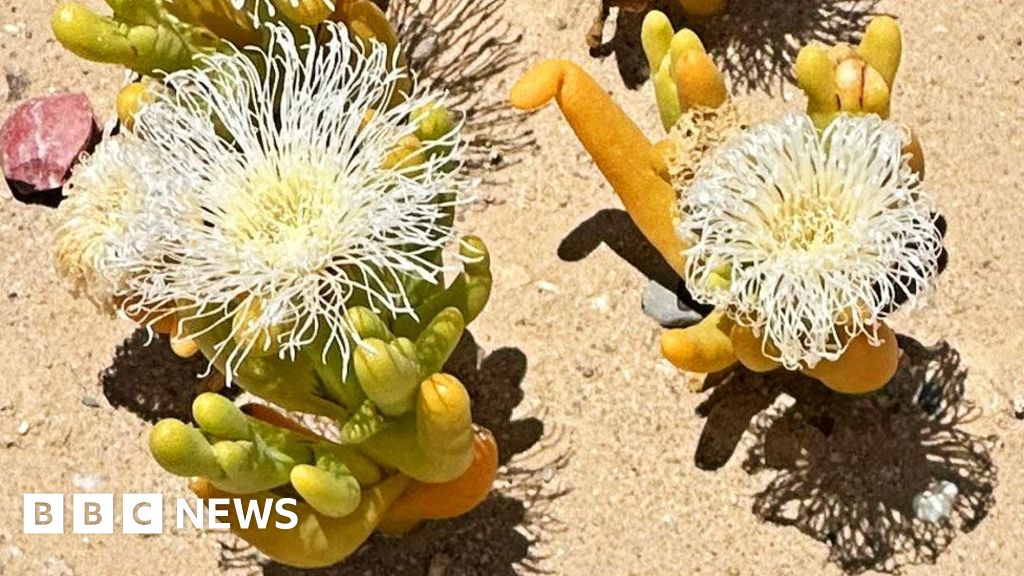A biodiversity hotspot in a remote part of South Africa has become the hub of an illegal trade in protected plant species, with organised crime groups capitalising on overseas demand. A variety known as succulents, named for their ability to hold water and survive in arid climates, are being poached from the wild and smuggled to buyers in the US, Europe and East Asia.
Many of the world’s succulent species are only found in the Succulent Karoo desert, which spans South Africa and Namibia. Succulent species range in size, shape and colour – some look like small multi-coloured buttons and some look like cacti, sprouting colourful flowers at certain times of the year.
While these varieties can be cultivated in nurseries, global demand is also fuelling the poaching of these plants from the wild, which are then smuggled and sold online. In Kamieskroon, a small town in the centre of South Africa’s Namaqualand region, the rolling hills have become a haven for poachers.
Some of the species are highly localised, and so can be wiped out by just a small amount of poaching. In South Africa, it is estimated that 1.6 million illegally harvested succulents were seized by law enforcement agencies between 2019 and 2024.
The South African government is well aware of the problem, and unveiled a strategy in 2022 to combat poaching. It includes running community programmes about the need to protect the environment.
Conservationists advise customers all over the world to ask about the origin of a plant, and under no circumstances should they buy those advertised as wild.
Source link




